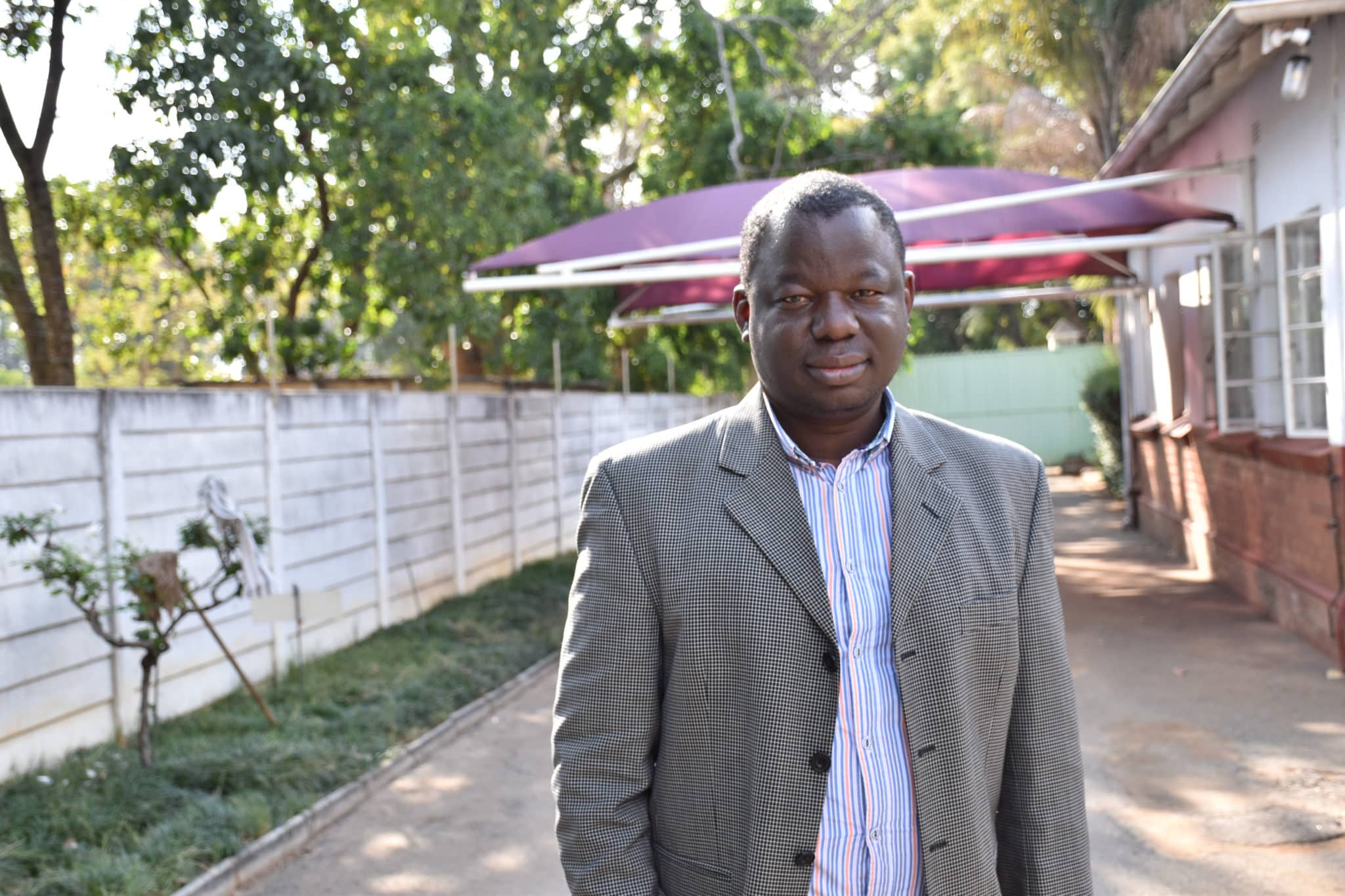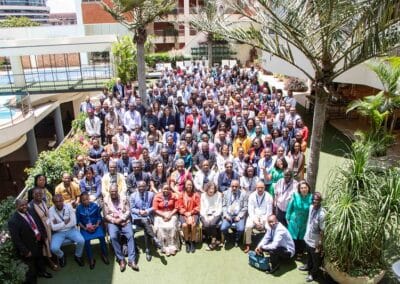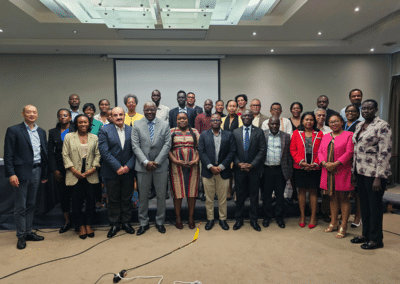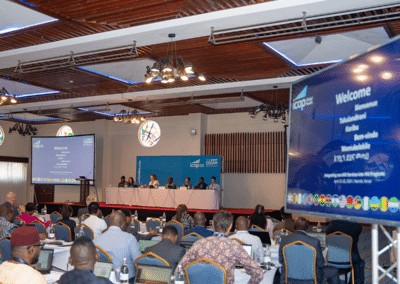Dr. Godfrey Musuka, Director of ICAP in Zimbabwe, and his team in Harare are working with the National Ministry of Health and Child Care (MoHCC), implementing partners, and colleagues at ICAP New York to assess male engagement in community ART refill groups (CARGs). The study is part of the HIV Coverage, Quality, and Impact Network’s portfolio of catalytic projects to scale up differentiated service delivery in sub-Saharan Africa. We sat down to talk with Dr. Musuka at the ICAP offices in Harare in July as researchers were preparing to collect data on facilitators and barriers to male involvement.
How did the Male Engagement Study come about?
In Zimbabwe, we saw HIV patient volume increasing in our health facilities, and a lot of them weren’t very sick. In other words, their HIV was stable. The Ministry of Health was looking for ways to decongest the facilities, and they were deciding on what kind of model to implement to solve this problem: the fast-track model, and community ART refill groups, or CARGs are the models they are currently using.
The Ministry realized that most CARG members were women. There are a significant number of males in Zimbabwe that are HIV-positive and on treatment, but why weren’t they in CARGs? Were they not set up the right way to get males involved? These are the questions the ministry started to ask. So we set out to understand the facilitators and barriers to male involvement.
It wasn’t long before we convened a technical working group, consisting of representatives from the Ministry of Health, Médecins Sans Frontières, CDC, USAID, FHI360, and the University of California, San Francisco Zimbabwe research project – all which had experience implementing HIV service delivery programs, as well as implementing or funding CARGs. There was broad consensus that studying male involvement in CARGs was important, and if we addressed it the right way, it could result in a significant positive change in service delivery and more effective decongestion of health facilities.
How will the study work?
The study will include interviews with staff and focus groups with patients at Bepura Clinic in the Guruve district of Mashonaland Central Province, and at Donain Clinic in the Mhondoro-Ngezi district of Mashonaland West Province. It will also involve interviews with central level key informants including the ministry of health, staff, donors, implementing partners, representatives of community-based organizations, faith-based organizations, and organizations supporting people living with HIV. Data collection will take around one month, and transcription around two months.
What are some of the strategies you think might work to involve males in CARGs?
Well, the study will tell us more, but I have a few ideas. Generally speaking, we know that men don’t access health services as often as women do. Part of that is due to the fact that women enter the system much earlier in life than men, and have more interaction with health providers for routine care of themselves and of children. What I have noticed is that the CARGs that are successful at engaging men seem to be the ones that offer economic incentives
For example, if you’re part of a CARG that offers monetary incentive, when it’s your turn to go to the clinic to pick up medication for the rest of the group, you don’t have to worry about missing work, because you’re making that money back. There are also groups that chip in money for individual health services, or even contribute toward micro-loans, like schooling for members’ children. There is one caveat, though, and that’s that these types of services appear to work best when women manage the money that is being pooled by the group.
What do you hope to achieve with this study?
We hope to improve our understanding of the barriers that might influence male involvement in CARGs. We plan to share the study results with the government so policies can be refined to make it easier or more appealing for males to participate. We will also share results with our implementing partners so when they do organize CARGs they are more effective at involving males.
We know that CARGs are being implemented in many countries across sub-Saharan Africa, so this will be a great asset to CQUIN member countries as they scale-up differentiated service delivery. The sooner we can initiate people on treatment, and make sure their viral loads are under control, the sooner we will be on the path to ending the HIV epidemic once and for all.
This story is part of a series focused on the evolution of the CQUIN network, and countries’ progress in improving differentiated service delivery. To follow this story and others, sign up for the network’s monthly newsletter.






